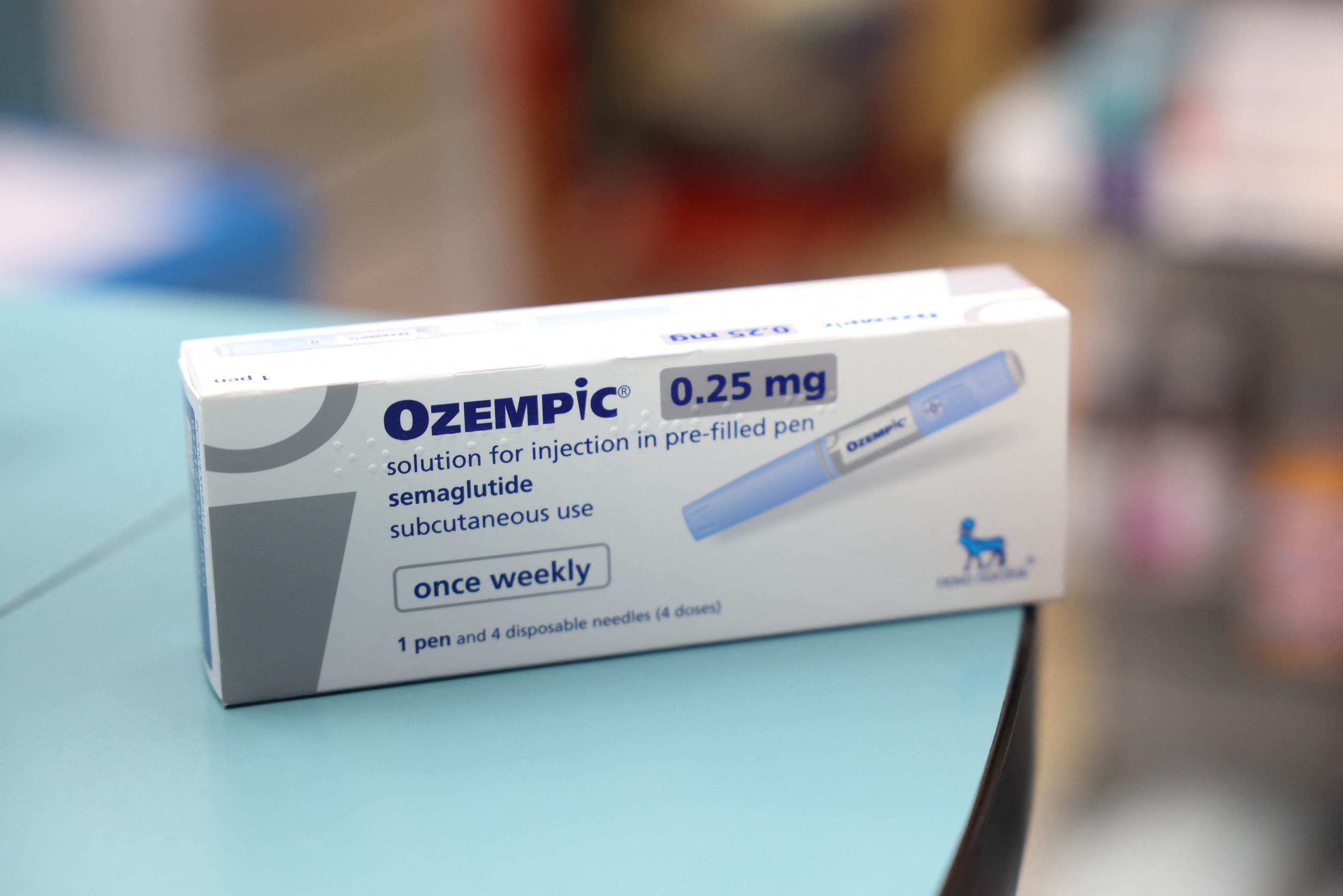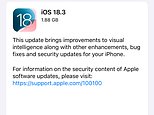Ozempic: only a few short years ago, it was a niche medical term, unfamiliar to most outside the healthcare world. Today, it's the buzzword on everyone's lips, dominating conversations at dinner parties, fitness studios and workplaces.
Initially developed as a groundbreaking treatment for type 2 diabetes , Ozempic is today known for an entirely different reason: its astonishing ability to help patients lose weight - and keep it off.
Now, it seems like not a week goes by without a celebrity either confessing to using it or fending off speculation about their rumoured reliance on the so-called 'skinny jabs'.
From Hollywood A-listers to social media influencers, Ozempic has become the not-so-secret weapon of choice in the quest for rapid weight loss – sparking admiration, controversy and fierce public debate.
Recently, an anonymous female celebrity spoke bravely about why she turned to Ozempic after a lifetime of struggling with her weight. Her story has inspired another public figure - this time a man - to share with us his reasons for going down the path of medically assisted weight loss.
For this person, who has spent years in the spotlight, the appeal of Ozempic was undeniable. He never considered himself lazy, but the idea of shedding kilos quickly and without too much effort and willpower, was just too tempting to resist.

But this is no glowing testimonial. Yes, Ozempic did for him what everyone knows it does - he lost weight, a lot of it - but it also left him with serious side effects.
He wants his story to be a warning to anyone considering Ozempic for weight loss. For some, it may be the right option - if their GP says so - but for others, sometimes it's better to do things the 'old-fashioned way'...
If I'm honest, the idea of a quick fix has always appealed to me - even before I was in the public eye. So, when I started hearing about Ozempic last year, I couldn't ignore it. Everyone around me was trying it so I thought, 'Why not?'
Now, I know what you're thinking: is that it? Well, I wish there was more to say about my journey that led me to Ozempic, but really it's as simple as that: I wanted to lose weight, I wanted it quickly, and I saw an opportunity.
I know from past experience that I can lose weight naturally when I want to. In fact, I was able to do so a few years ago while rehearsing for a reality TV show (you've probably heard of it - it involves a shiny floor and a lot of dancing). By the end of the competition I was 10kg lighter. Not bad for a month's work.
Looking back on that period of my life, I really did feel incredible – more confident, lighter on my feet, and more energetic than I had felt in years.
People started noticing, and I'd be lying if I said I didn't enjoy it. They would say things like, 'You look amazing! What's your secret?' I've never been the sort of man to crave compliments, but it gave me a real buzz.
Flash forward a few years and life got a lot busier. I was no longer the lean, nimble dancer from your TV screens - and I was starting to feel it.

When I met my girlfriend in 2022, together we decided to start focusing on our health. I was working out more, eating better and finally felt as good as I did at my physical peak. But I wanted more.
By this time, it seemed everyone was talking about Ozempic - no longer just as a treatment for people with diabetes, but as a so-called 'miracle' weight-loss drug.
I would meet people who were 'on it' and the weight was falling off them like magic. I figured, what's the harm in trying it myself? After all, I'm taller than most, standing at over six feet, and I thought losing a few extra kilos would do me good.
I began with a weekly injection of 0.25mg, gradually increasing to 0.5mg. Like I said, I was already making progress naturally before starting, but with Ozempic everything was supercharged.
The results were immediate. I actually couldn't believe how quickly I started to see changes. If I combined Ozempic with exercise, I would find myself losing anywhere from two to five kilos every couple of weeks.
I cut carbs, limited myself to eating fruit during the day, and had just one healthy meal at night. My go-to meal was a poke bowl packed with fresh greens, salmon and colourful toppings like edamame and radish.
It might not sound like much - but I never felt hungry on Ozempic. Not once.
I was ecstatic, I looked great, and the compliments kept coming. But even as the kilos disappeared, I couldn't shake the nagging feeling that something wasn't right.
Here's the bad part: the Ozempic side effects hit me hard. I'm not exaggerating to say every day felt like a struggle.
I still have a notepad at work where I'd scribbled down: 'I woke up feeling like I was going to die.' It sounds dramatic but that's how I felt more often than not.
My body ached - constantly. I felt perpetually drained, as though I'd run a marathon. Some days the mere thought of food made me nauseous.
At first the Ozempic suppressed my appetite - which was fine - but over time I started losing my ability to enjoy food at all. I knew I would want to eat less, but no one told me this would happen.
There were times I couldn't even manage a single slice of pizza. Back in the day I would happily eat a whole box to myself while hanging out with friends.
And then there's alcohol.
I'd heard rumblings online that Ozempic diminishes your enjoyment of booze, but this side effect hit me like a steamroller almost straight away.
I used to enjoy drinking socially with friends and my girlfriend. Attending celebrity events and bar and restaurant openings was a big part of my life. But that's over now - even one glass of wine leaves me feeling nauseous and unsettled.
I started to question if it was all worth it.
When I decided to bite the bullet and try Ozempic, the main thing on my mind was I wanted to stop snacking. Eating between meals was a bad habit I just couldn't shake.


And I'll admit, the drug did what it promised: I stopped snacking immediately. But there's a dark side this: my prior fixation with snacks became an obsession with the medication. Yes, I no longer thought about food - but I obsessed about Ozempic. I knew I was relying too heavily on it.
I don't know how long I'll stay on Ozempic, but I'm certain my relationship with food and medication has been irreversibly changed. I wish someone had told me that before.
Don't get me wrong - I like my new body. But deep down I miss being able to eat whatever I want, have normal-sized portions, and go a day without thinking about those damned injections.
Ozempic also sparked an obsession with medically assisted weight loss that, I'm ashamed to say, led to me experimenting with illegal drugs to further suppress my appetite.
In many ways, despite looking 'healthier' than ever, taking Ozempic has ruined my old lifestyle of exercising outdoors and spending time by the beach.
I live in an area of Australia where most people you meet love to swim, surf and run. They're healthy without really trying to be, because physical activity is ingrained in their lifestyle. I used to live that way too - but Ozempic has changed my entire view of health. I now only see numbers on a scale.
Another thing no one tells you about 'the jabs' is the judgement you face. I've been accused of taking the 'easy way out' and not working hard enough at the gym. I don't tell many people about Ozempic, but they can always tell: you lose weight too fast, especially around your face.
For anyone considering Ozempic or similar drugs, I'd urge you to think carefully before going to your doctor. It's not the 'miracle' it's made out to be: the weight loss may be fast, but the physical and emotional toll is far greater than I ever anticipated.As I write this, I'm trying to regain control of my health in a way that feels sustainable.
I have cut back on the injections and hope my appetite will return. With a little willpower, I should be able to keep my weight down.
Perhaps that's what I should have been doing all along.
- As told to Ali Daher
A disclaimer: Ozempic is only approved for the treatment of diabetes in Australia. While some doctors may prescribe it for weight loss after a thorough assessment of their patient's needs, Daily Mail Australia is not endorsing its use for this purpose. You should always seek advice from a medical professional.












